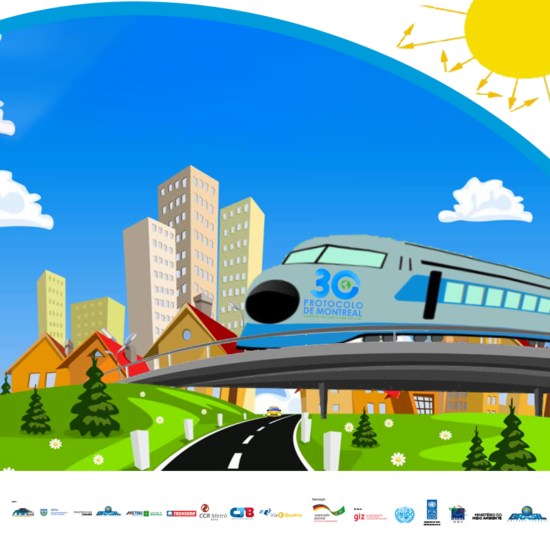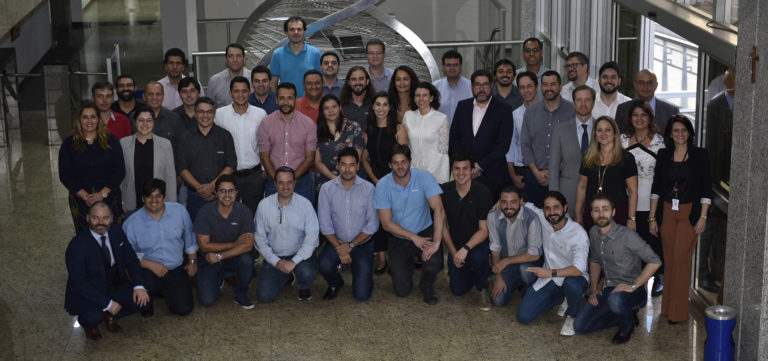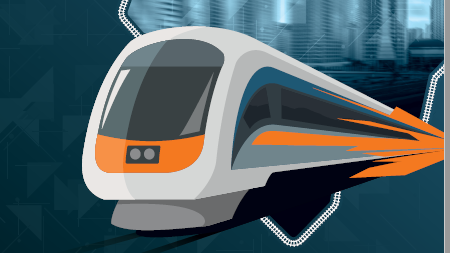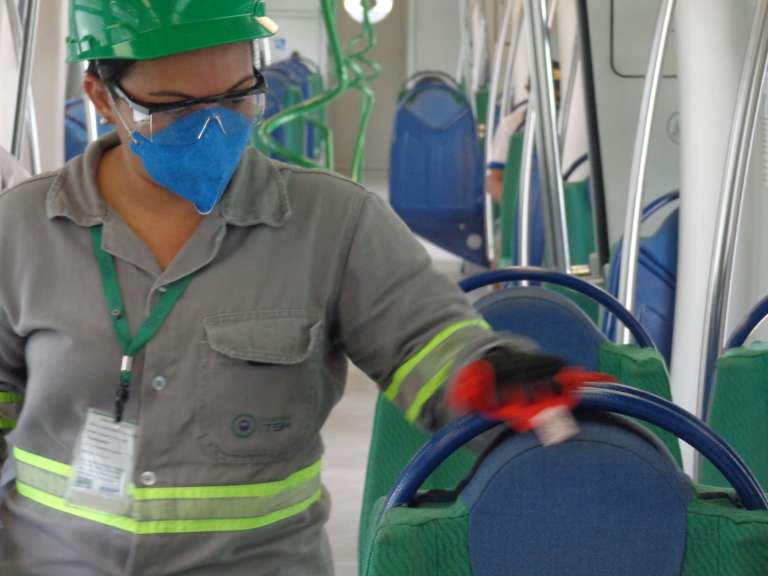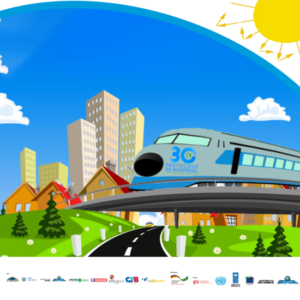
Since the beginning of November, users of trains and subways in Brazil are having contact with the results and benefits of 30 years of implementation of the Montreal Protocol. The initiative is part of the 30-year commemorative campaign of the Montreal Protocol, supported by the National Association of Passenger Rail Operators (ANPTrilhos) which aims to disseminate information on actions taken to eliminate ozone-depleting substances.
In 30 years, countries parties to the Protocol have completely eliminated the consumption and production of chlorofluorocarbons (CFCs), halons, methyl bromide for agricultural purposes, CTC and are currently in the phase of elimination of hydrochlorofluorocarbons (HCFCs).
These substances, when emitted into the atmosphere, react with stratospheric ozone, breaking its molecule. The result is the rarefaction of the ozone layer and the consequent increase in the incidence of UV-B rays on the surface of the Earth. In excess, this radiation can cause skin cancer, cataracts, and a decrease in the biodiversity of plants and animals.
The campaign aims to reach an audience of about 4.2 million people per day in nine cities in four regions of the country: Porto Alegre (RS), São Paulo (SP), Belo Horizonte (MG), Brasília (DF), Salvador (BA), Maceió (AL), Recife (PE), João Pessoa (PB) e Natal (RN).
In addition, through interactivity, users will be able to send photos and messages on social networks, using the hashtag #30AnosProtocoloDeMontreal, and download publications on the protection of the ozone layer in their mobile devices, with QR codes printed on the pieces stations.
“The idea of entering the subways in the 30-year publicity campaign was to get closer to the citizen and show that ozone-depleting substances are present in consumer goods that are part of our day. A number of actions over these years have been made so that we continue to have access to these consumer goods, but without them contributing to the destruction of the protective layer that keeps all living beings from excess ultraviolet radiation, “says the General-Coordinator of Protection of Ozone Layer from the Ministry of the Environment (MMA), Magna Luduvice.
“Sustainability is a practice that goes hand in hand with the metro rail system of passengers. Without sound pollution and zero emission for electrified systems, the use of trains, subways and light rails contributes significantly to the improvement of the environmental quality of the cities where they are installed. Nevertheless, the operators of this transportation system are aware that for the sustainability of the planet it is important for each one to do his part. In this way, with our millions of passengers transported every day, our systems also become an important vehicle for communication and commitment to the environment”, says Roberta Marchesi, Superintendent of the National Association of Passenger Rail Operators (ANPTrilhos)
Thanks to the efforts of the Montreal Protocol, it is estimated that by the mid-21st century the ozone layer will recover to the levels recorded in the early 1980s. However, it is important that the population also do its part by choosing to purchase products that are free of ozone-depleting substances and by charging for the proper disposal of these substances, mainly in polyurethane foams, refrigeration appliances and air-conditioning. Protecting yourself from UV-B rays harmful to human health is another attitude that must be improved, and you should always use sunscreen when exposed to outdoor environments.
The campaign is a partnership between the implementing agencies of the Montreal Protocol in Brazil – the MMA, the Brazilian Institute of Environment and Renewable Natural Resources (IBAMA); the United Nations Development Program (UNDP); the United Nations Industrial Development Organization (UNIDO); the German cooperation agency GIZ; ANPTrilhos and the trains and subways companies associated to ANPTrilhos – Companhia Brasileira de Trens Urbanos (CBTU), ViaQuatro, Companhia Paulista de Trens Urbanos (CPTM), Trensurb, CCR Metrô Bahia, Companhia de Transporte do Estado da Bahia (CTB) and Metrô-DF.
To learn more about the Montreal Protocol, access the websites www.mma.gov.br/ozonio, www.protocolodemontreal.org.br and www.boaspraticasrefrigeracao.com.br

